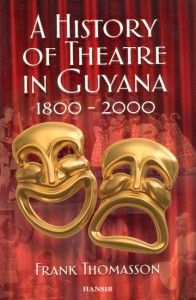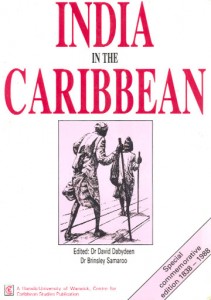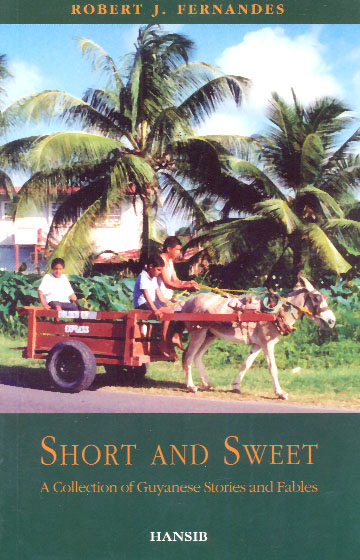
There are other dimensions to the book crisis in Guyana; like the scourge of wholesale copyright transgression, particularly the ‘pirating’ of school texts and the fact that the authorities simply refuse to read a ‘riot act’ against what, under our own laws, is an illegal practice. Then there is the worrying thought that even in those cases where books are available – particularly to school-age children- reading has become a pursuit of necessity, linked to what has come to be known as “cramming” for examination purposes rather than to the acquisition of a breadth of knowledge beyond that which is required for the purpose of satisfying the requirements of the school curriculum.

At the level of the university, lecturers complain with increasing frequency about research pursuits which, in the absence of the relevant texts, inevitably turn to the internet, sometimes to unsourced and academically questionable material, though some lecturers point out that it is quite often not a question of difficulty in accessing books but an aversion to painstaking, reading-oriented research and a predilection for the ‘quick fix’ option which the information super highway offers.
The surfeit of books that appeared during the CARIFESTA period and the enthusiastic response of local book lovers served to remind us that some Guyanese have not lost their passion for reading. Many of the books that were either launched or displayed during CARIFESTA are bound to add value to the various private collections and, hopefully, to public and school libraries too; books like Robert Fernandes’ collection of short stories titled ‘Short and Sweet;’ Frank Thomasson’s ‘History of Theatre in Guyana;’ ‘Themes in African Guyanese History’ – a collection of academic essays on socio-economic issues surrounding slavery in Guyana edited by historians Winston Mc Gowan, James Rose, ‘India in The Caribbean’ edited by David Dabydeen and Brinsley Samaroo and “The Commonwealth and the World’ a collection of tributes to former Commonwealth Secretary General Sir Shridath Ramphal edited by Richard Bourne. All these are titles about Guyana, authored and/or edited – except in one instance – by Guyanese and which, but for CARIFESTA X, would probably never have 
Such accessibility to these books as was afforded was due in considerable measure to the decision by their publisher, HANSIB Publications, to offer them during CARIFESTA at considerably less than their published prices.
Less than a month after CARIFESTA students of foreign policy and international law received their own book ‘treat’ with the launch of what is perhaps the most important book on the subject of International Relations, with Guyana as one of the central themes ever to be published.
Suriname’s invasion of Guyana’s maritime space in June 2000 and the eviction of the CGX oil rig conducting exploratory work in Guyana’s waters was not only a blatant transgression of international law but an attempt to derail an economic pursuit that is of the most critical to Guyana’s development, the search for self-sufficiency in energy.
Attempts at resolving the matter first, bilaterally, then, regionally having fallen victim to Suriname’s intransigence, those events ushered in a period of international legal enquiry under the United Nations Law of the Sea (UNCLOS). Those proceedings ultimately vindicated Guyana’s insistence that Suriname had acted illegally and that the CGX oil rig had in fact been illegally evicted from Guyana’s maritime space.

A Triumph For UNCLOS is not a book ‘about Guyana.’ It is an account of the legal proceedings that led to Guyana’s vindication; a case study on the role of UNCLOS in maritime dispute settlement. In the latter sense – and Sir Shridath himself pointed this out – the book is really part of a more globally relevant collection of documents on a specialized area of Inter-national Relations and international Law. Over time, it’s contents will serve, critically, to help inform decision-making in similar types of dispute settlements while references from its various sections are bound to find their way into the bibliographies of text books and academic papers.
In all these various respects the book has a relevance that transcends Guyana and Suriname. It is, as its title states, A “Triumph For UNCLOS.” In that sense its launch in London – the home of its publishers – or in New York – perhaps as part of the programme of the recently concluded Sixty Third Session of the United Nations General Assembly – would have been equally fitting. As it turned out both the author and the publisher thought it fit that the book be launched here in Guyana, a gesture that is no small matter in the context of the options available to them.
These days, book launches in Guyana are few and when they occur they attract meagre gatherings, the two hundred and fifty, or so, persons who attended the launch of ‘Triumph For UNCLOS’ at the Le Meridian Pegasus on Saturday September 20th was a considerable vindication of the decision to launch the book here. It provided an opportunity for Guyanese to secure access to a valuable collection of documents that are of both local and international significance and to receive a “top shelf’ lecture on the intricacies – and, at times, the high drama – of the proceedings of the UNCLOS Arbitration Tribunal.
The launch of the book here was also a triumph for
HANSIB whose owner, Arif Ali, has openly admitted that he has set himself the challenge of helping to restore both books and reading to their proper place in Guyana.
Since CARIFESTA, HANSIB books, on Guyana, the Caribbean and various other titles, have been circulating in reading circles while the National Library has benefited from a gift of a collection of HANSIB publications.
Conscious as he is of the risks associated with piracy Ali has already gone on record with a strong anti-piracy statement and a public commitment – which he says has already been partially actualized – to working with government, local writers, publishers and booksellers to seek to reverse the trend of copyright transgression.
The copyright transgression issue is by no means an uncomplicated one and is certainly not unique to Guyana. It persists in a number of developing countries – in Africa and Asia, among others – where large school-age populations, high prices for published texts and access to cheaper reprinting options have made pirating a lucrative option and raises no issues of morality or legality among those for whom cheaper access is really the only issue.
If concerns over the likelihood that putting greater pressure on pirates will significantrly increase the cost of education in developing countries like Guyana, there are other issues to consider – like the loss of revenue to authors and publishers and the increasing insistence of some international organizations that support for education be tied to respect for copyright laws.
Restoring the reading habit is also part of the responsibility of the school system and the recent announcement by the Education Minister that Guyana has just received a large consignment of books for schools through its Consulate in New York is good news.
Apart from hastening the process of creating libraries – real libraries, not simply books thrown placed inside a room – the Ministry of Education must also move to equip at least some of its teachers with training in Librarianship so that the books can be properly catalogued and a regime of book borrowing and book care instituted.
The recent focus on books also reminds us of the centenary of the National Library next year. Perhaps that even can be commemorated in such a manner as to lend continuity to the small but significant resurgence of the book culture
created during CARIFESTA X. Arnon Adams






